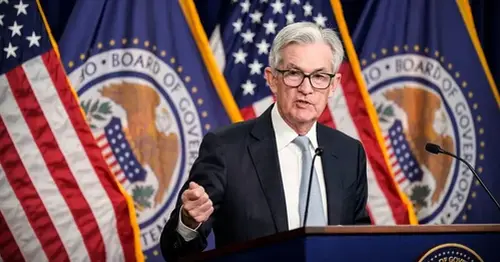
Interest rate increase: February 2023. How much will the Federal Reserve raise rates?
The Federal Reserve will announce its latest interest rate increase Wednesday afternoon. The central bank has been on an aggressive campaign that has produced nearly monthly rate hikes since March. It's all part of an effort to slow inflation.
While there are now ample signs that inflation is, indeed, decelerating, some indications suggest that the economy is already reflating, which could send prices creeping up again.
According to a Bloomberg index, financial conditions in the U.S. have eased to their loosest level since last February, meaning it is becoming easier to borrow money and sell goods again. That's reflected in declining average mortgage rates, which have fallen back to 6.13% after having hit a high of 7.08% in November.
In addition, rising prices of commodities like oil, as well as a weakening U.S. dollar and improvement in the performance in the stock market, have all contributed to some cautious optimism about the economy.
For now, economists say that recession fears appear to be unwarranted and that, if anything, there remains a risk that the Fed will have to continue its monetary tightening to prevent the economy from growing too fast again.
"The Fed is staring down the barrel of an upturn in economic activity," Neil Dutta, the head of U.S. economics at Renaissance Macro financial group, wrote in a recent note to clients. A 0.25% interest rate hike may end up proving too small, Dutta said — with the risk that the Fed will have to return to a stricter policy later. "The Fed’s story only works if the economy is slowing down. Sorry, but I don’t see it."
Economists at Bank of America agree.
"Passing peak inflation is welcome and policymakers appear to have increased confidence that inflation is on a downward path," the bank's analysts wrote in a note to clients Tuesday, "but the Fed is not yet convinced that inflationary pressures will dissipate quickly."
The Fed did get a favorable data point Tuesday in its effort to slow inflation, although it came at the expense of workers: Private wages and salaries climbed by just 1% in the last three months of 2022, down from a 1.2% gain in the quarter before that, according to the Bureau of Labor Statistics.
Economists say the Fed will continue to emphasize that it will keep interest rates higher for longer, even if it comes at the expense of gains in wages and employment — although it will most likely point out that the unemployment rate remains historically low to keep making the case for its rate-hiking agenda.






